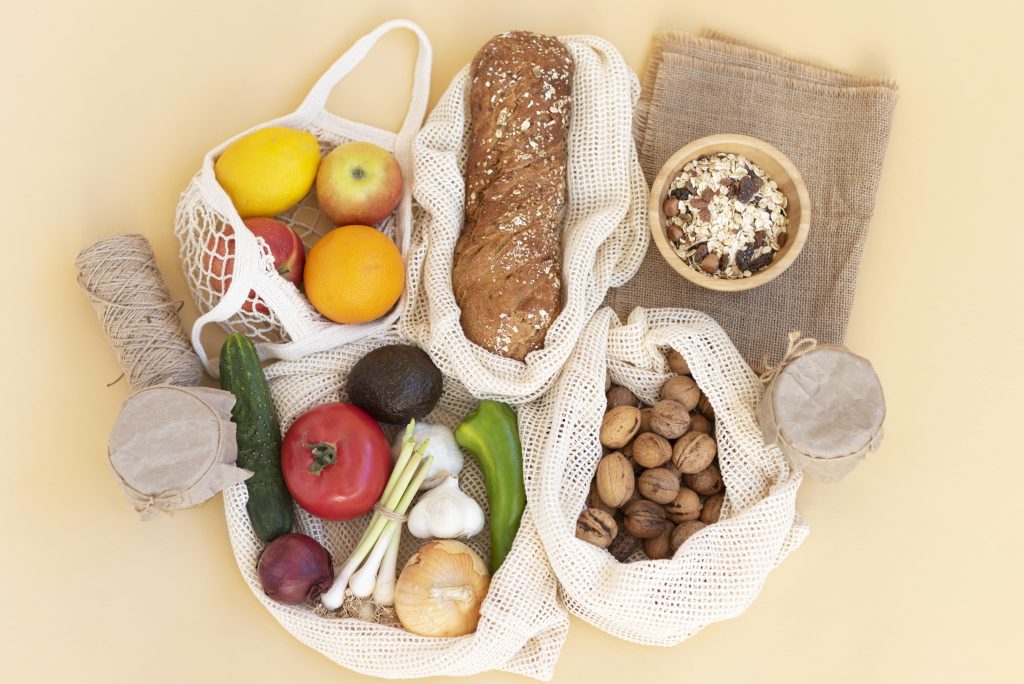The numbers are alarming: each year, more than 132 kg of food waste is generated per person in the European Union—72 kg of that comes from households alone, accounting for around 54% of the total [1].
Reducing food waste has become a global priority, not only for environmental reasons but also due to economic and ethical concerns. Governments and international organizations are committed to legislating in favour of food waste reduction. The European Commission, for instance, intends to halve per capita food waste at both retail and consumer levels by 2030, in line with Sustainable Development Goal target 12.3.
One of the key strategies in this effort is the preservation of food quality and safety for longer periods. While refrigeration and packaging innovations have made important contributions, the use of antioxidants remains one of the most effective methods to prevent spoilage and degradation.
How do natural antioxidants prevent spoilage in food products?
Spoilage often originates from oxidative reactions involving fats, proteins, and pigments, especially in products rich in lipids or iron, such as meat and dairy. This degradation not only affects taste and nutritional value but also causes a significant amount of food to be discarded before consumption, reducing its shelf life. Natural antioxidants can stabilize reactive oxygen species (ROS) and break the oxidation chain reactions that degrade food quality.
Tocopherols (vitamin E), commonly extracted from vegetable oils, are among the most effective natural antioxidants in food. Their lipid solubility allows them to integrate seamlessly into fatty matrices, protecting them from rancidity and allowing for shelf life extension. Additionally, plant-based extracts from rosemary, oregano, and grape seeds exhibit strong antioxidant and antimicrobial activity, contributing not only to oxidative stability but also to improved food safety by inhibiting spoilage organisms.
These effects are evident across various food categories. In meat, for example, alfa-tocopherol significantly improved the oxidative stability of cooked beef and chicken meat [2]. In dairy, the inclusion of polyphenol-rich botanicals like chamomile and red ginseng increased antioxidant content in yogurt, improving shelf life while maintaining desirable sensory attributes [3].
Extending shelf life and reducing food waste through natural preservation
Shelf life extension is central to reducing food waste, especially in perishable categories such as meat, dairy, and plant-based foods. Natural antioxidants offer a way to preserve food quality without relying on synthetic additives, which face increasing scrutiny from regulators and consumers alike. Their ability to delay lipid and protein oxidation not only improves product longevity but also reduces the frequency of food disposal across the supply chain, from processors to households.
In practical terms, a longer shelf life means food can be transported over greater distances without risk of deterioration, stored longer at retail locations, and kept in home pantries or refrigerators without premature spoilage. This extended usability helps retailers manage stock more efficiently and reduces the frequency of expired products being discarded. For consumers, it means fewer purchases are thrown away due to unexpected spoilage, directly contributing to household-level food waste reduction.
Refrigeration, freezing, drying, fermentation, canning, pasteurization, sterilization, high-pressure packaging, and antioxidants have been used to extend the shelf life of foods and reduce waste. Nevertheless, research has demonstrated that integrating natural antioxidants into the product, rather than relying solely on packaging, offers a comprehensive preservation strategy. For instance, yogurt enriched with pomegranate peel extract showed significant improvements in antioxidant activity and overall stability [4].
This approach enables food to remain edible and appealing for longer periods, reducing the pressure on retail logistics and decreasing spoilage rates at the consumer level.
Why food manufacturers are turning to natural antioxidants?
The shift toward natural antioxidants is driven by multiple factors. Clean label ingredients that support consumer preferences, regulatory pressure on synthetic additives, and rising sustainability goals are key motivators. But beyond market trends, natural antioxidants deliver measurable performance benefits. They have been shown to improve oxidative stability, preserve nutrients, and, in some cases, enhance the nutritional value of food by contributing bioactive compounds like polyphenols and tocopherols.
Furthermore, the use of these compounds aligns with broader strategies to combat food waste. Losses in industrialized nations are often concentrated at the retail and household level, precisely where extended shelf life has the greatest potential to make an impact. By enhancing durability without compromising quality or consumer trust, natural antioxidants help manufacturers address both waste and wellness objectives.
In this context, Btsa offers a valuable contribution to the food industry. With decades of experience in the development of natural antioxidant solutions, we provide tocopherol-rich natural antioxidants.
Tocobiol® is a natural antioxidant for food preservation made from tocopherols from non-GMO vegetable oil. It is ideal for protecting food and increasing its shelf life without altering the final product’s color or smell. It is a clean label ingredient that blocks free radicals, protecting fats and oils from rancidity.
The growing focus on food preservation as a means of minimizing waste makes natural antioxidants more relevant than ever. Their functional properties, versatility across applications, and compatibility with eco-conscious production systems place them at the heart of a smarter, more sustainable food industry.
Sources
[1] European Commission. Food waste and food waste prevention – estimates. Eurostat Statistics Explained. 2024 Sep [cited 2025 Apr 14]. Available from: https://ec.europa.eu/eurostat/statistics-explained/index.php?title=Food_waste_and_food_waste_prevention_-_estimates
[2] Rojas MC, Brewer MS. Effect of natural antioxidants on oxidative stability of cooked, refrigerated beef and pork. J Food Sci. 2007 May;72(4):S282-8. doi: 10.1111/j.1750-3841.2007.00335.x.
[3] Alenisan MA, Alqattan HH, Tolbah LS, Shori AB. Antioxidant properties of dairy products fortified with natural additives: A review. Journal of the Association of Arab Universities for Basic and Applied Sciences. 2017;24:101–6. doi:10.1016/j.fshw.2017.05.002
[4] El-Said MM, El-Said MA, Othman SI, Al-Kahtani SN, El-Shehawi AM, El-Damrawy SZ. Antioxidant activities and physical properties of stirred yoghurt fortified with pomegranate peel extracts. Annals of Agricultural Sciences. 2014;59(1):207-12. doi.org/10.1016/j.aoas.2014.11.007.

